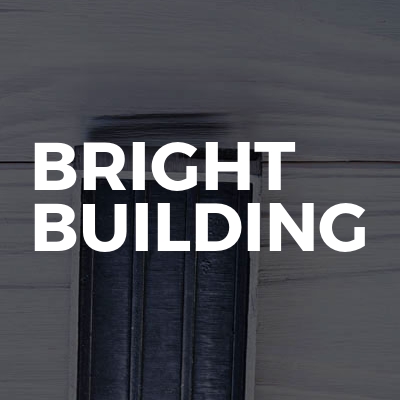Understanding Garage Conversions in Biggleswade
Garage conversions in Biggleswade are becoming increasingly popular as homeowners seek to maximise their living space without the hassle of moving. By transforming an underutilised garage into a functional room, you can significantly enhance your home's value and utility. This article delves into the various aspects of garage conversions, offering insights and guidance for those considering this home improvement project.
The Benefits of Garage Conversions
Garage conversions offer numerous advantages. Firstly, they provide additional living space, which can be used for a variety of purposes, such as a home office, gym, or guest room. This extra space can be particularly beneficial for growing families or those who work from home. Moreover, a well-executed conversion can increase the value of your property, making it a wise investment for the future.
Cost-Effectiveness
Compared to building an extension, garage conversions are generally more cost-effective. They utilise existing structures, reducing the need for extensive construction work. This can result in significant savings, both in terms of time and money. Additionally, the process is often quicker, allowing you to enjoy your new space sooner.
Environmental Impact
By repurposing an existing structure, garage conversions can be more environmentally friendly than new builds. They often require fewer materials and generate less waste, making them a sustainable choice for eco-conscious homeowners.
Planning Permission and Regulations
Before embarking on a garage conversion in Biggleswade, it's essential to understand the planning permissions and regulations involved. While many conversions fall under permitted development rights, meaning they don't require planning permission, there are exceptions. It's crucial to check with the local council to ensure compliance with all relevant regulations.
Building Regulations
Regardless of whether planning permission is needed, all garage conversions must comply with building regulations. These standards ensure that the conversion is safe, energy-efficient, and suitable for habitation. Key areas covered by building regulations include structural integrity, fire safety, insulation, and ventilation.
Design Considerations for Garage Conversions
Design is a critical aspect of any garage conversion. The space should be functional, aesthetically pleasing, and in harmony with the rest of your home. Consideration should be given to the layout, lighting, and materials used to ensure the space meets your needs and preferences.
Maximising Space
To make the most of your garage conversion, it's important to maximise the available space. Clever storage solutions, such as built-in shelving or multi-functional furniture, can help you achieve this. Additionally, choosing a layout that complements the room's intended use can enhance its functionality.
Lighting and Ventilation
Proper lighting and ventilation are crucial for creating a comfortable and inviting space. Natural light can be maximised by adding windows or skylights, while artificial lighting should be carefully planned to suit the room's purpose. Adequate ventilation is also essential to prevent dampness and ensure good air quality.
Choosing the Right Professionals
Hiring the right professionals is key to a successful garage conversion. Experienced builders, architects, and designers can provide valuable expertise and ensure the project is completed to a high standard. It's important to research and select professionals with a proven track record in garage conversions.
Checking Credentials
Before hiring any professionals, it's essential to check their credentials. This includes verifying their qualifications, experience, and references. Additionally, ensure they are registered with relevant professional bodies, such as the Federation of Master Builders or the Chartered Institute of Building.
Getting Quotes
Obtaining multiple quotes from different professionals can help you find the best value for your project. Be sure to compare not only the cost but also the scope of work and timeline provided by each professional. This will help you make an informed decision and avoid any unexpected costs.
Budgeting for Your Garage Conversion
Creating a realistic budget is an essential step in planning a garage conversion. This should include all costs associated with the project, such as design, materials, labour, and any necessary permits or fees. It's also wise to set aside a contingency fund to cover any unforeseen expenses.
Cost Breakdown
A detailed cost breakdown can help you manage your budget effectively. This should outline the costs for each aspect of the project, allowing you to identify any areas where savings can be made. Regularly reviewing your budget throughout the project can help you stay on track and avoid overspending.
Financing Options
If your budget is tight, there are several financing options available for garage conversions. These include personal loans, home improvement loans, or remortgaging. It's important to carefully consider the terms and interest rates of each option to ensure it suits your financial situation.
Common Challenges and Solutions
While garage conversions offer many benefits, they can also present challenges. Common issues include limited space, structural concerns, and planning restrictions. However, with careful planning and the right expertise, these challenges can be overcome.
Space Constraints
One of the most common challenges is making the most of a limited space. This can be addressed by choosing a functional layout and incorporating smart storage solutions. Additionally, using light colours and mirrors can create the illusion of a larger space.
Structural Issues
Structural issues, such as dampness or inadequate foundations, can pose significant challenges. It's important to conduct a thorough assessment of the garage's condition before starting the conversion. Any issues should be addressed by qualified professionals to ensure the space is safe and suitable for habitation.
Case Studies of Successful Garage Conversions
Examining case studies of successful garage conversions can provide inspiration and insights for your project. These examples showcase a variety of uses and designs, demonstrating the versatility and potential of garage conversions.
Home Office Transformation
One homeowner in Biggleswade transformed their garage into a stylish home office. By incorporating plenty of natural light, ergonomic furniture, and ample storage, they created a productive and comfortable workspace.
Guest Suite Creation
Another successful conversion involved turning a garage into a cosy guest suite. This included adding an en-suite bathroom, a small kitchenette, and comfortable furnishings, providing a welcoming space for visitors.
Frequently Asked Questions
Do I need planning permission for a garage conversion in Biggleswade?
In many cases, garage conversions fall under permitted development rights and don't require planning permission. However, it's essential to check with the local council to ensure compliance with all relevant regulations.
How long does a garage conversion take?
The duration of a garage conversion can vary depending on the complexity of the project. On average, it can take between four to six weeks to complete.
What is the average cost of a garage conversion?
The cost of a garage conversion can vary widely based on factors such as size, design, and materials. On average, you can expect to pay between £10,000 and £20,000.
Can I convert a detached garage?
Yes, detached garages can be converted. However, additional considerations, such as access and utilities, may need to be addressed.
Will a garage conversion add value to my home?
A well-executed garage conversion can increase the value of your home by providing additional living space and enhancing its functionality.
What are the most popular uses for converted garages?
Common uses for converted garages include home offices, gyms, guest rooms, playrooms, and additional living areas.
Garage conversions in Biggleswade offer a practical and cost-effective solution for homeowners looking to expand their living space. By understanding the benefits, planning requirements, and design considerations, you can successfully transform your garage into a valuable and functional part of your home. With careful planning and the right expertise, a garage conversion can enhance your property's value and utility, providing a space that meets your needs and lifestyle.














